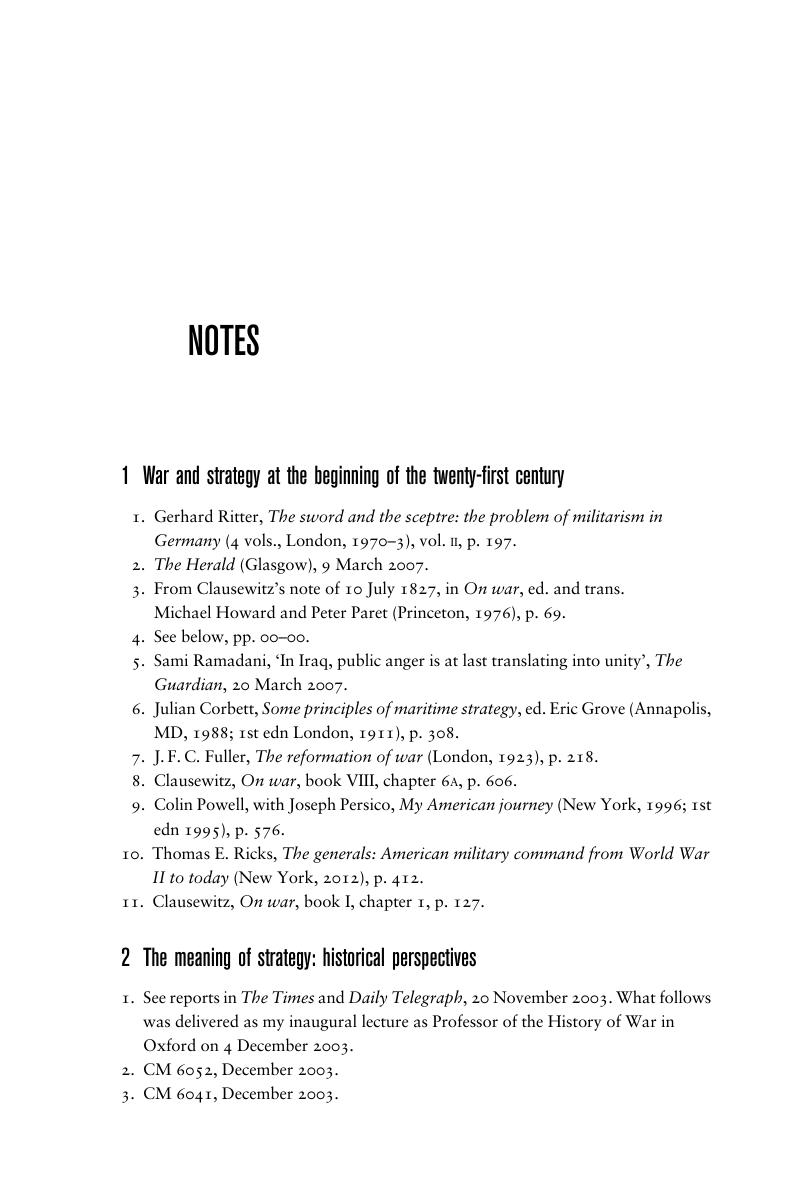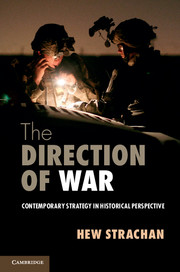Book contents
- Frontmatter
- Contents
- Acknowledgements
- Introduction
- 1 War and strategy at the beginning of the twenty-first century
- 2 The meaning of strategy: historical perspectives
- 3 The case for Clausewitz: reading On war today
- 4 Making strategy work: civil–military relations in Britain and the United States
- 5 Strategy and the limitation of war
- 6 European armies and limited war
- 7 The limitations of strategic culture:the case of the British way in warfare
- 8 Maritime strategy and national policy
- 9 Technology and strategy
- 10 War is war: imperial legacies and current conflicts
- 11 Strategy and the operational level of war
- 12 Strategy and contingency
- 13 Strategy: change and continuity
- Notes
- Index
- References
- Frontmatter
- Contents
- Acknowledgements
- Introduction
- 1 War and strategy at the beginning of the twenty-first century
- 2 The meaning of strategy: historical perspectives
- 3 The case for Clausewitz: reading On war today
- 4 Making strategy work: civil–military relations in Britain and the United States
- 5 Strategy and the limitation of war
- 6 European armies and limited war
- 7 The limitations of strategic culture:the case of the British way in warfare
- 8 Maritime strategy and national policy
- 9 Technology and strategy
- 10 War is war: imperial legacies and current conflicts
- 11 Strategy and the operational level of war
- 12 Strategy and contingency
- 13 Strategy: change and continuity
- Notes
- Index
- References
Summary

- Type
- Chapter
- Information
- The Direction of WarContemporary Strategy in Historical Perspective, pp. 283 - 313Publisher: Cambridge University PressPrint publication year: 2013



